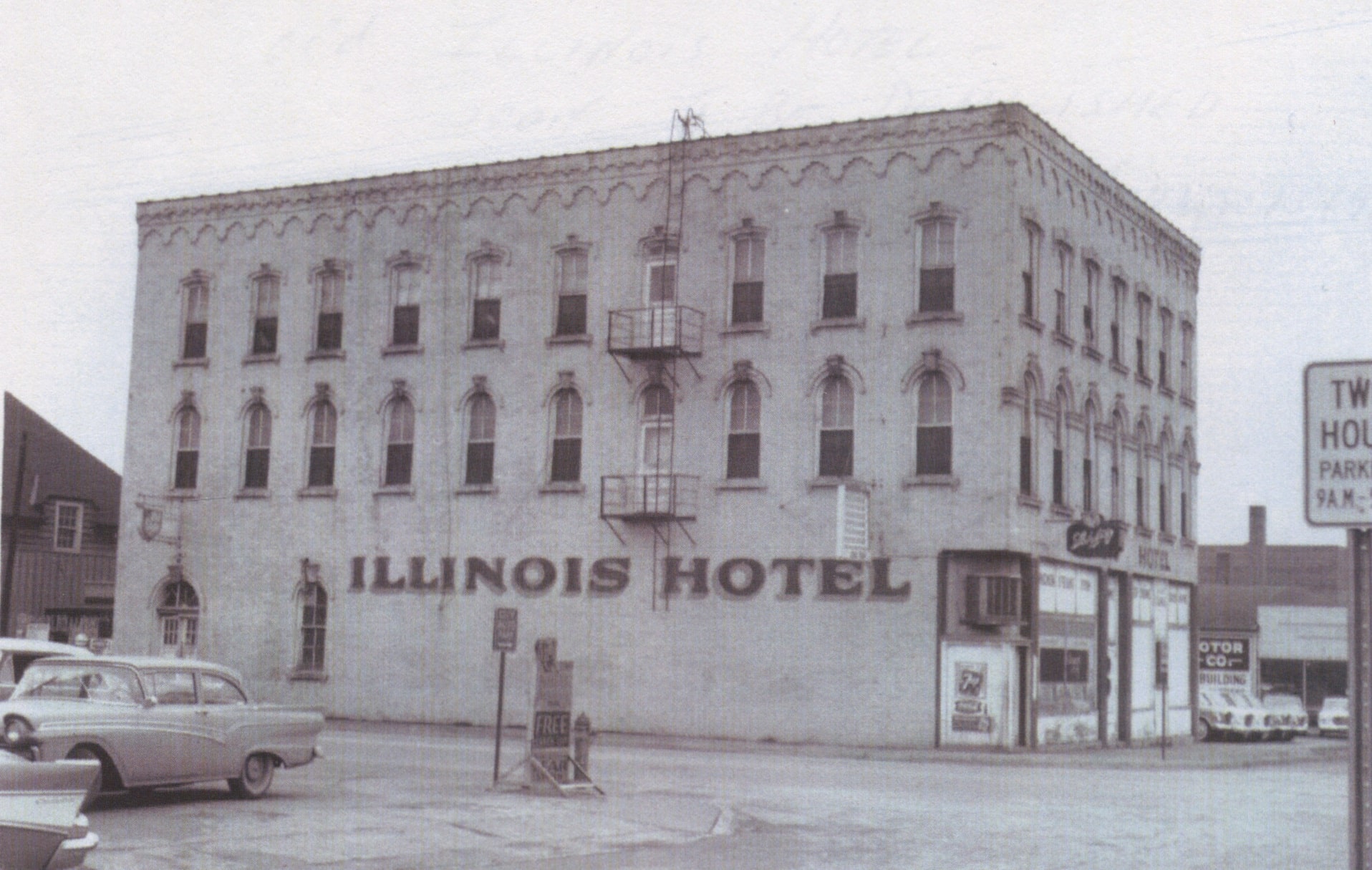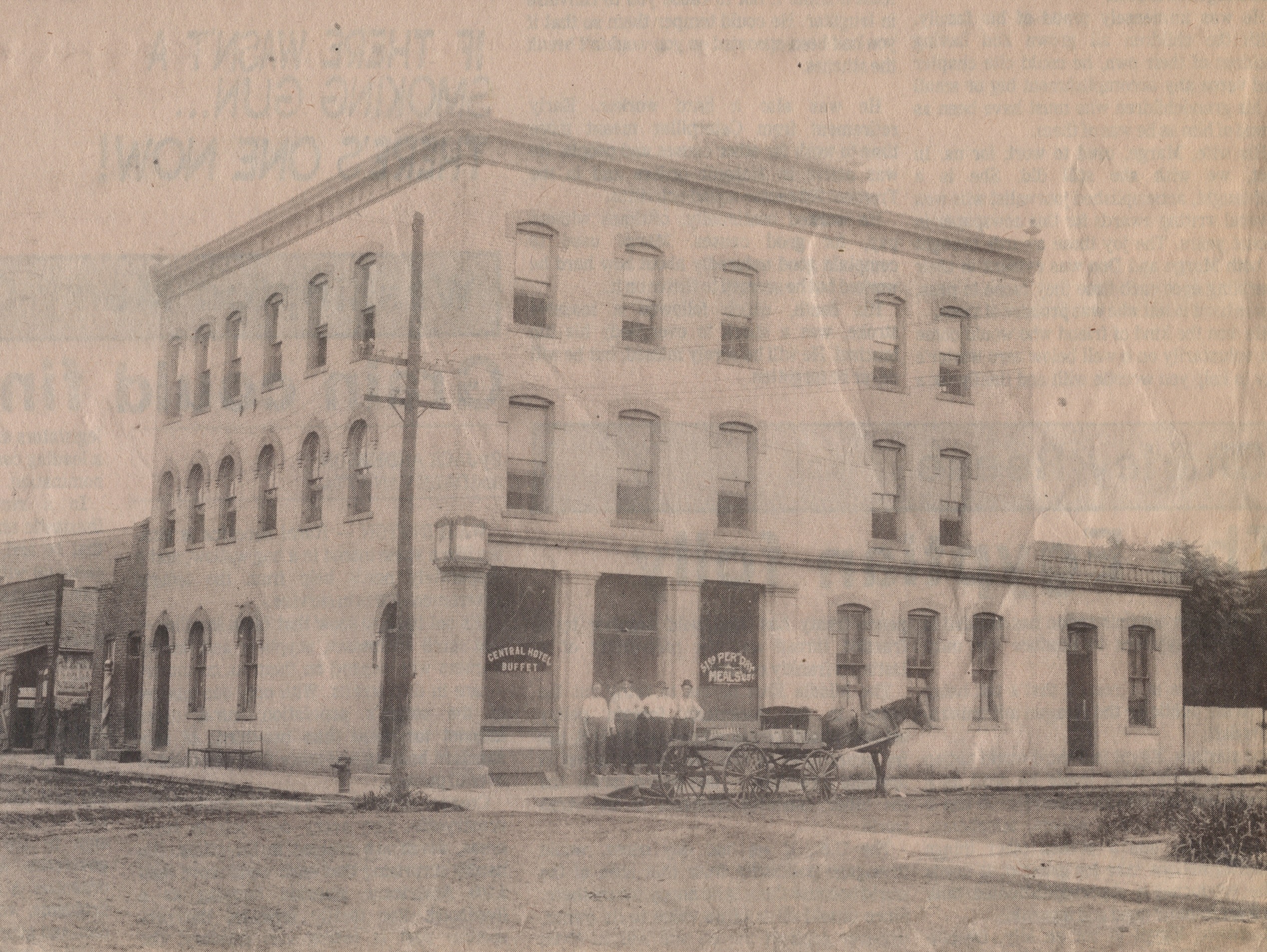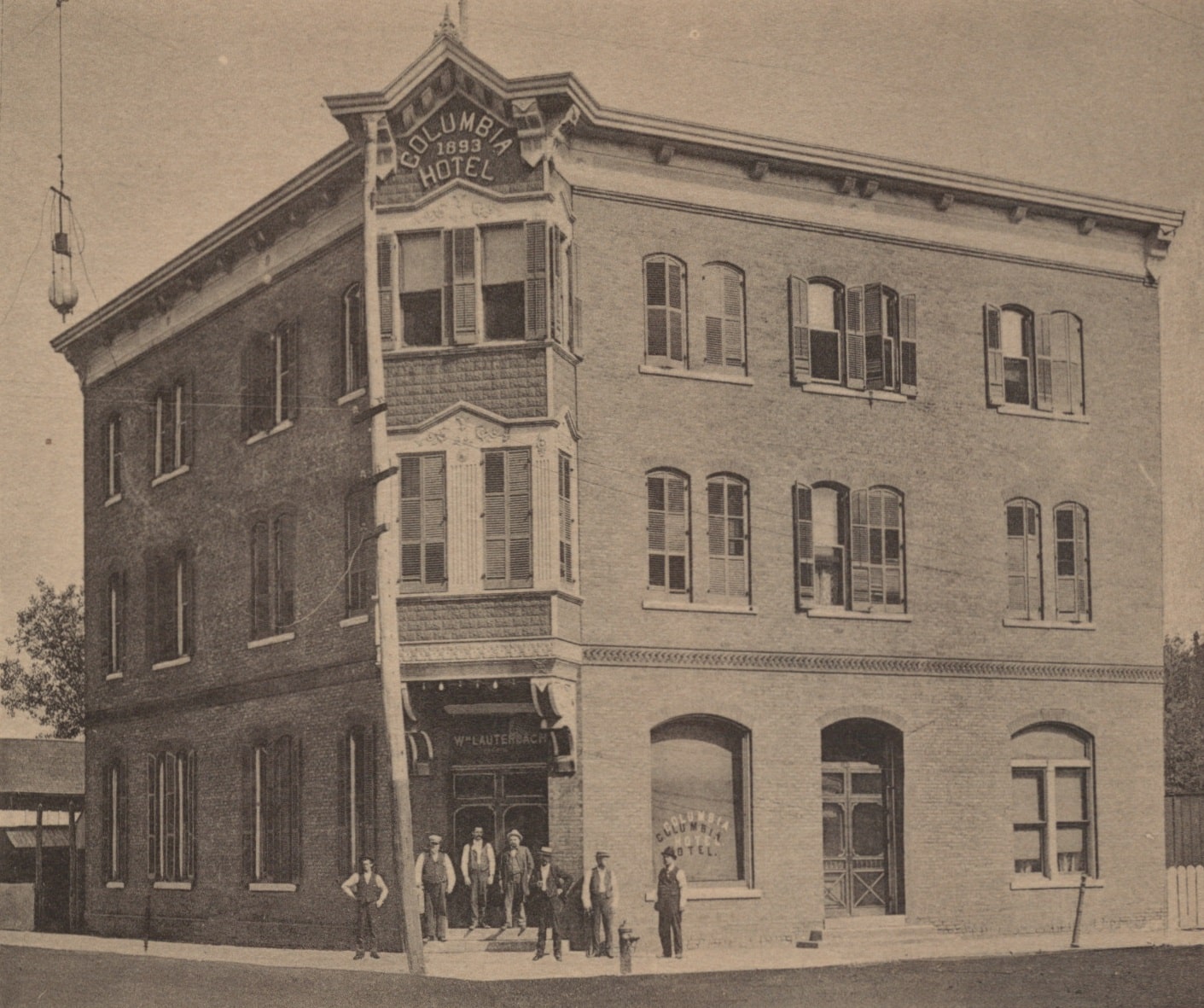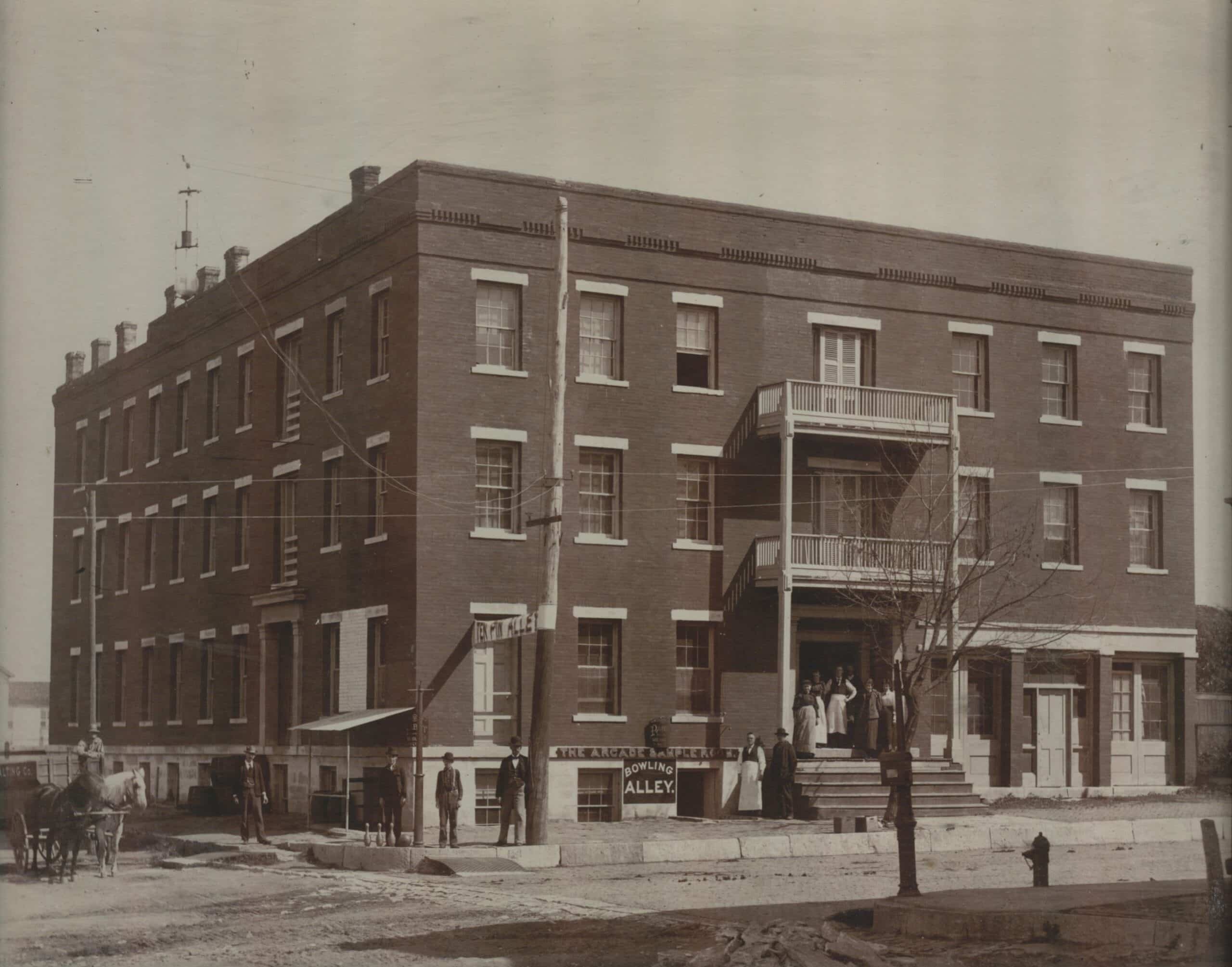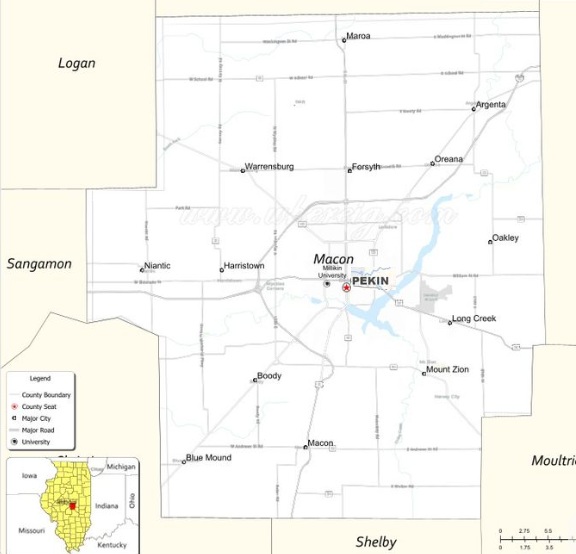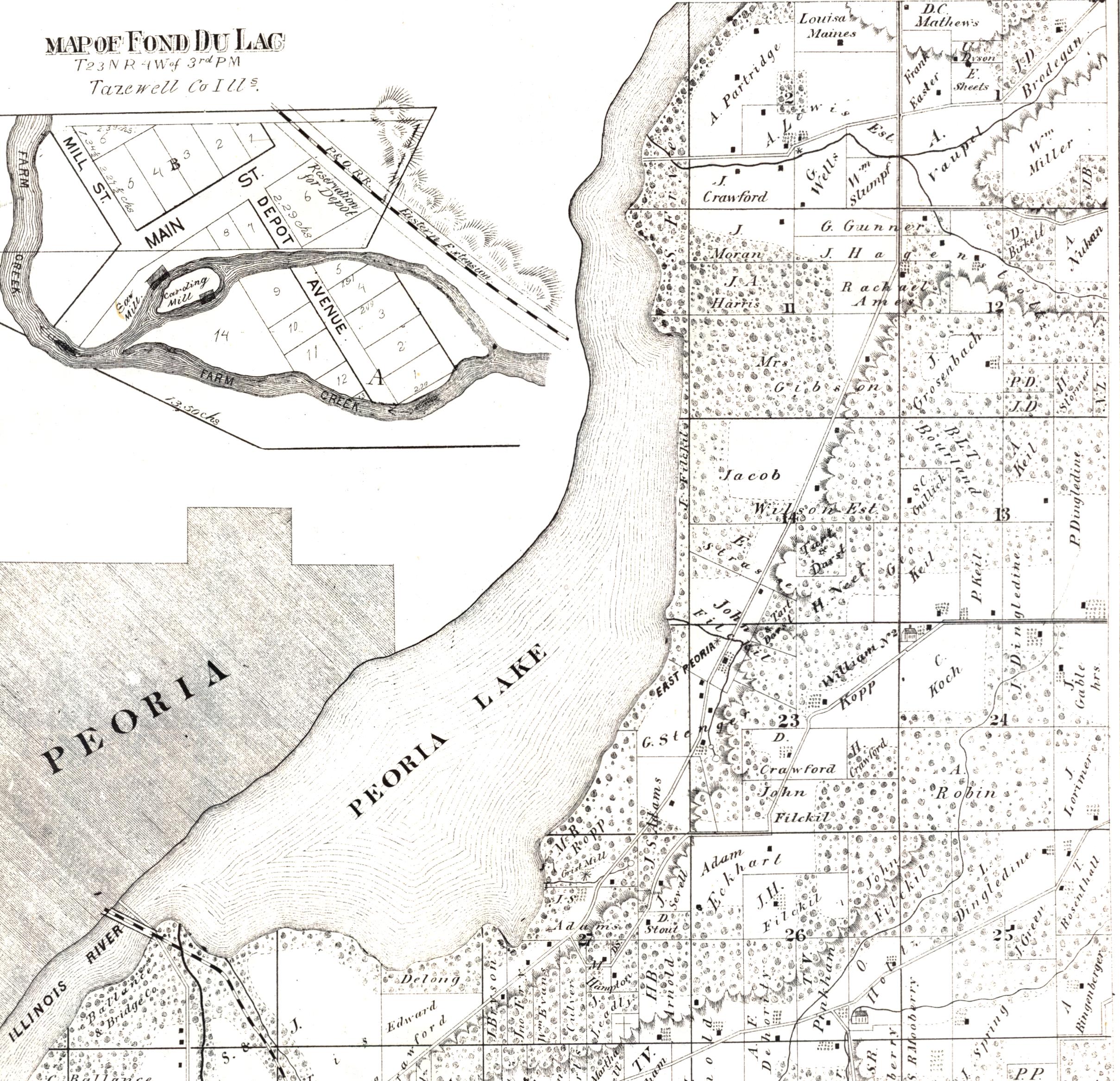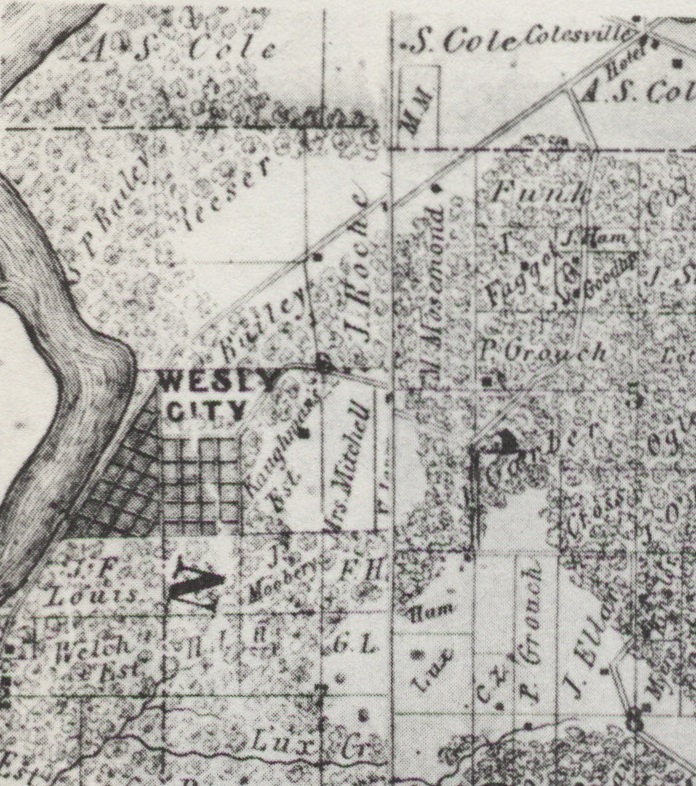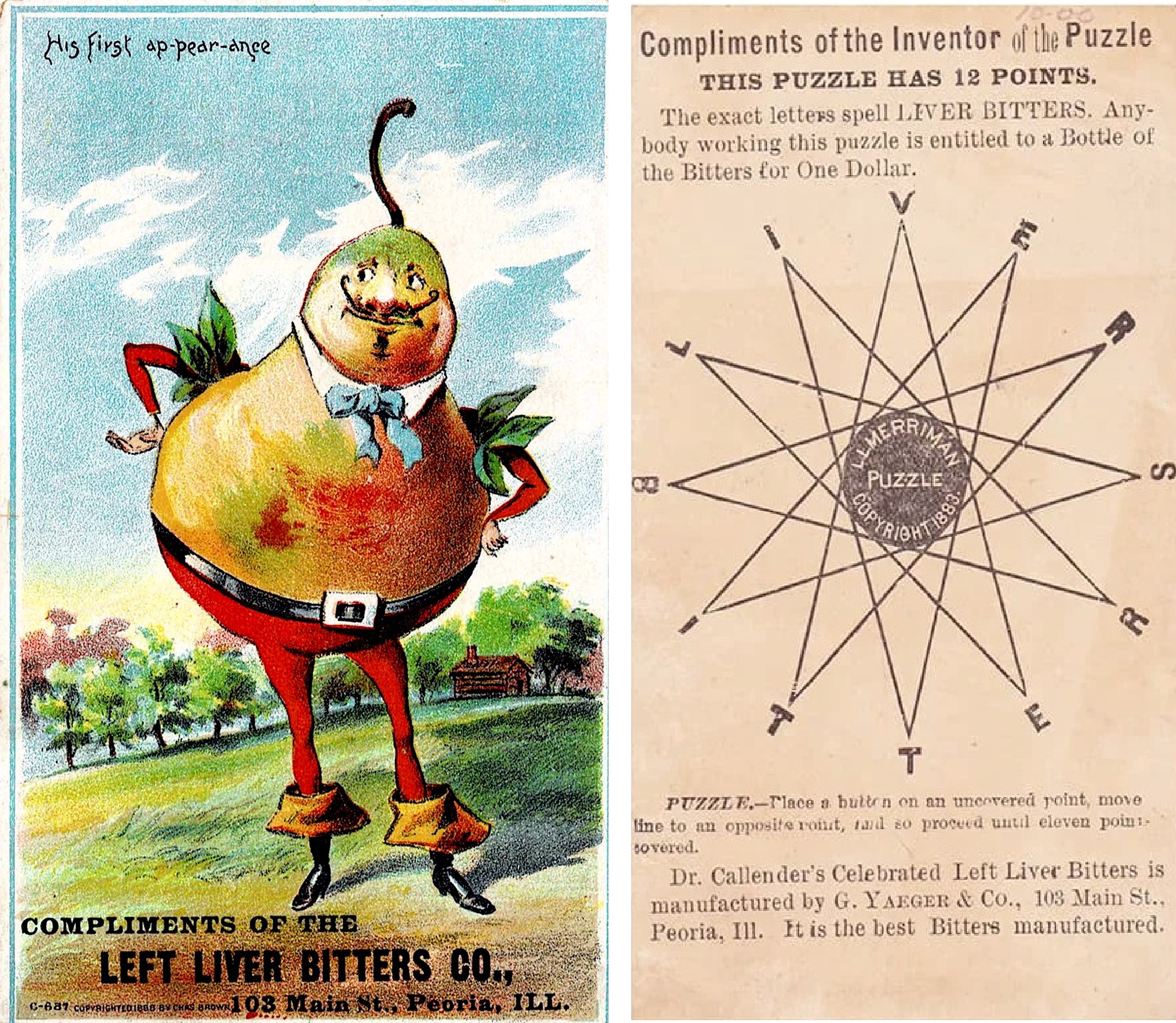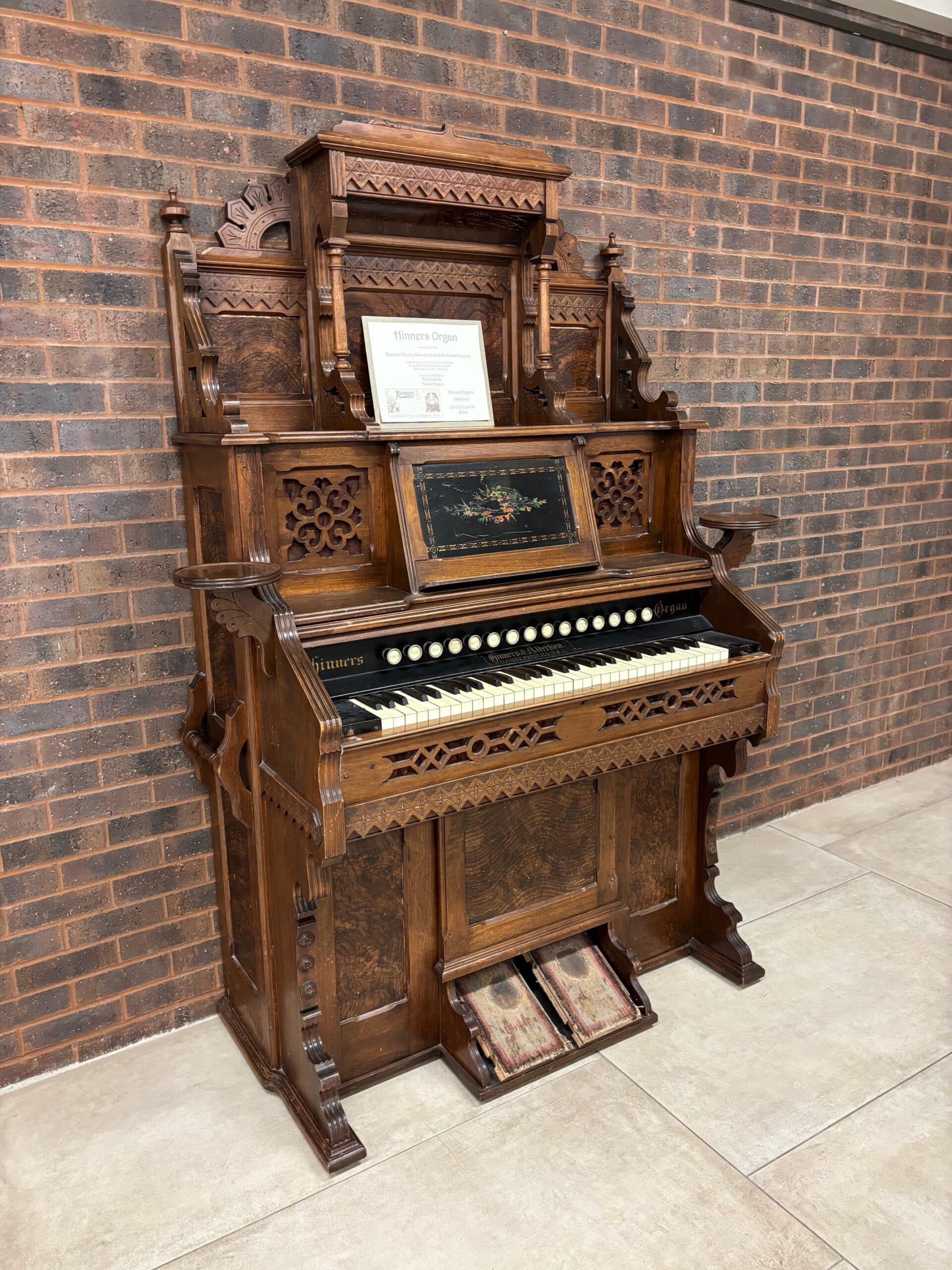This is a reprint of a “From the Local History Room” column that first appeared in February 2012 before the launch of this weblog.
Modern travelers passing through Pekin or staying for a few days have a few hotels to choose from out on the east end of town, but in the past downtown Pekin had an array of hotels where visitors to “the Celestial City” could find food and a place to lay their heads at night. Following are some of the interesting details about the history of Pekin’s lost hotels may be gleaned from the files of the Pekin Public Library’s Local History Room.
Gideon H. Hawley opened the first hotel in Pekin in 1830, but little is known about his venture. In 1839, the Columbia Hotel was opened at Margaret and Fourth streets, where the Windsor Hotel later was built. Another prominent hotel of early Pekin was the American, which was torn down in 1874.
In 1848, two ‘first class’ hotels were established in Pekin. One of them, the Eagle, was on the riverfront at the foot of Court Street. The Eagle’s keeper was Seth Kinman, who later achieved notoriety as a hunter and trapper, presenting Presidents Abraham Lincoln and Andrew Johnson with buckhorn and bearclaw chairs that he had made. The other hotel was the Taylor House, later called the Mansion House, whose keeper was “Uncle Bill” Tinney, a veteran of the Mexican-American War who was one of the American soldiers who captured General Santa Ana’s wooden leg (the general leaving it behind during his escape on the back of a mule).
The late former Pekin resident Charles B. Smith in 1946 related the following anecdote he’d heard from those days, when Pekin still had much of the character of a wild frontier town:
“A traveler came off an Illinois river boat one day and went to the Eagle Hotel. There had been a little western scrimmage at the Eagle the night before and, though things had not yet been put in order, the proprietor, Seth Kinman, was sitting in front of the door playing his favorite tune, the Arkansas Traveler, with the greatest self-satisfaction. The stranger stopped and asked Seth: ‘Are you the proprietor here?’ Seth, without resting his bow, replied: ‘Wal, I reckon I be, stranger.’ ‘Do you keep tavern?’ ‘Of course I do, keep tavern like hell’ said Seth fiddling away with all his might, ‘Just pile in, hang your freight on the floor and make yourself at home.’ ‘The boys,’ continued Seth, ‘have been having a little fun but if there’s a whole table or plate in the house I’ll get you some cold hash toward night.’
“The stranger didn’t like the place and took his departure leaving the proprietor still enjoying his violin.
“Late in the afternoon the stranger presented himself at the Taylor House. Uncle Bill Tinney met him outside with his most austere expression. His greeting was: ‘Good morning, good morning, sir. Walk in, sir, and take a seat. Shave you as soon as water gets warm.’ The stranger, not requiring the services of a barber, walked away in haste and amazement and Uncle Bill swore audibly: ‘Some infernal Yankee come out west to steal honest people’s money.’
“The next steamboat that came along found the discomfited traveler on the river bank, awaiting passage for anywhere out of Pekin.”
Tinney later became Pekin’s Justice of the Peace and police magistrate, and also served terms as Tazewell County Sheriff and Coroner, acquiring the nickname “Five Dollars and Costs” because that was the fine he would hand down except in major cases. He was even better known for his stance in support of the voting rights of blacks — after the Civil War, he made a name for himself locally when he, a white man, escorted the African-American men of Pekin to the polls to exercise their newly-won right to vote.
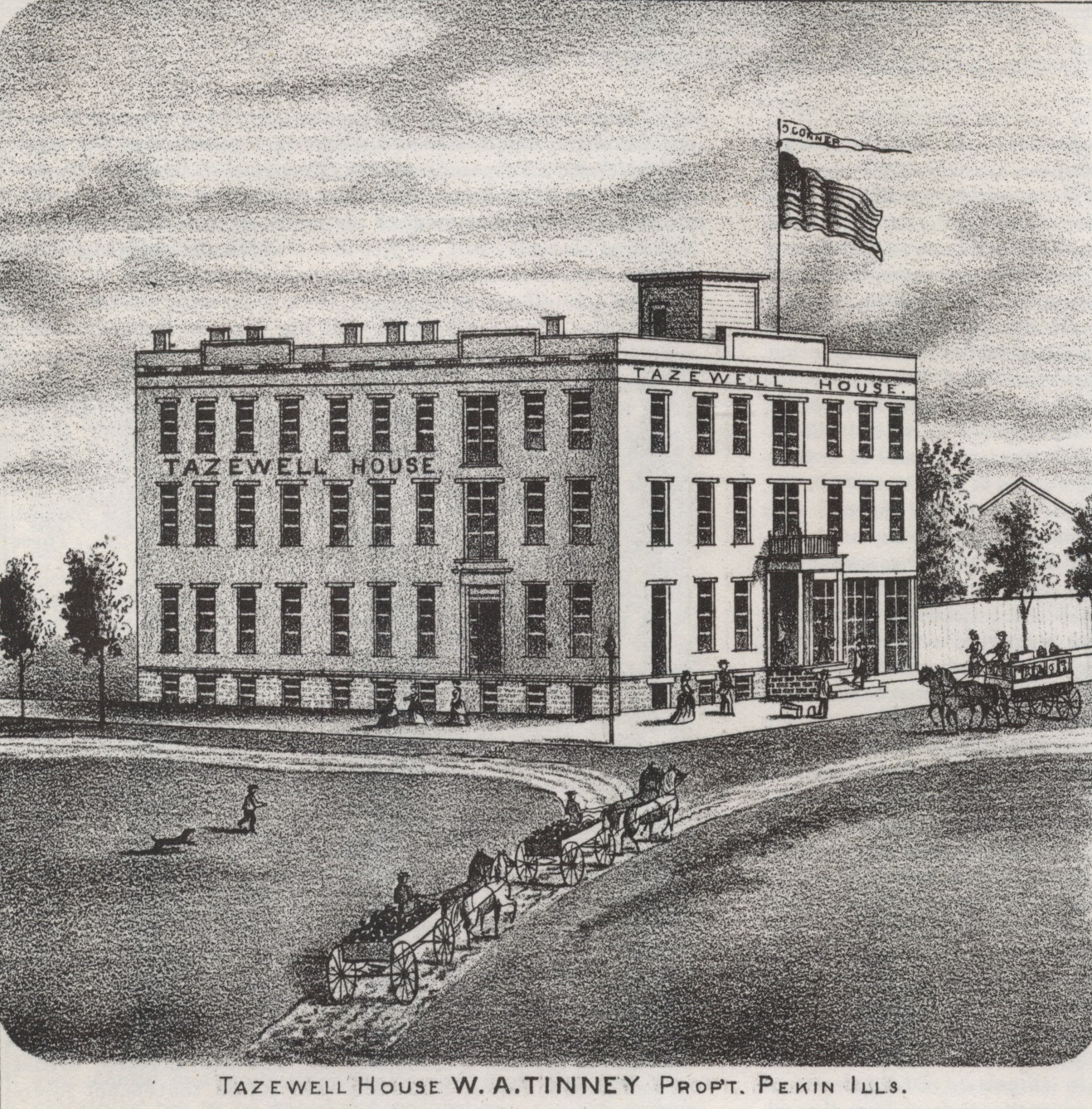
In 1859, Tinney also became the manager of the Eagle, which he renamed “Tazewell House.” Both Lincoln and Stephen A. Douglas stayed at the Eagle or Tazewell House when they were in town on lawyerly business at the Tazewell County Courthouse.
Even so, business at the Tazewell House wasn’t very good, so the property passed in 1867 to Thomas K. Bemis, who rechristened the hotel “Bemis House.” Under his direction, as Charles B. Smith recalled from his own youth, Bemis House became Pekin’s preeminent hotel and the center of Pekin’s social life until the 1880s, when it suffered major damage during a tornado. The structure was repaired, but after Bemis’ death it became a boarding house and finally was razed in 1904.
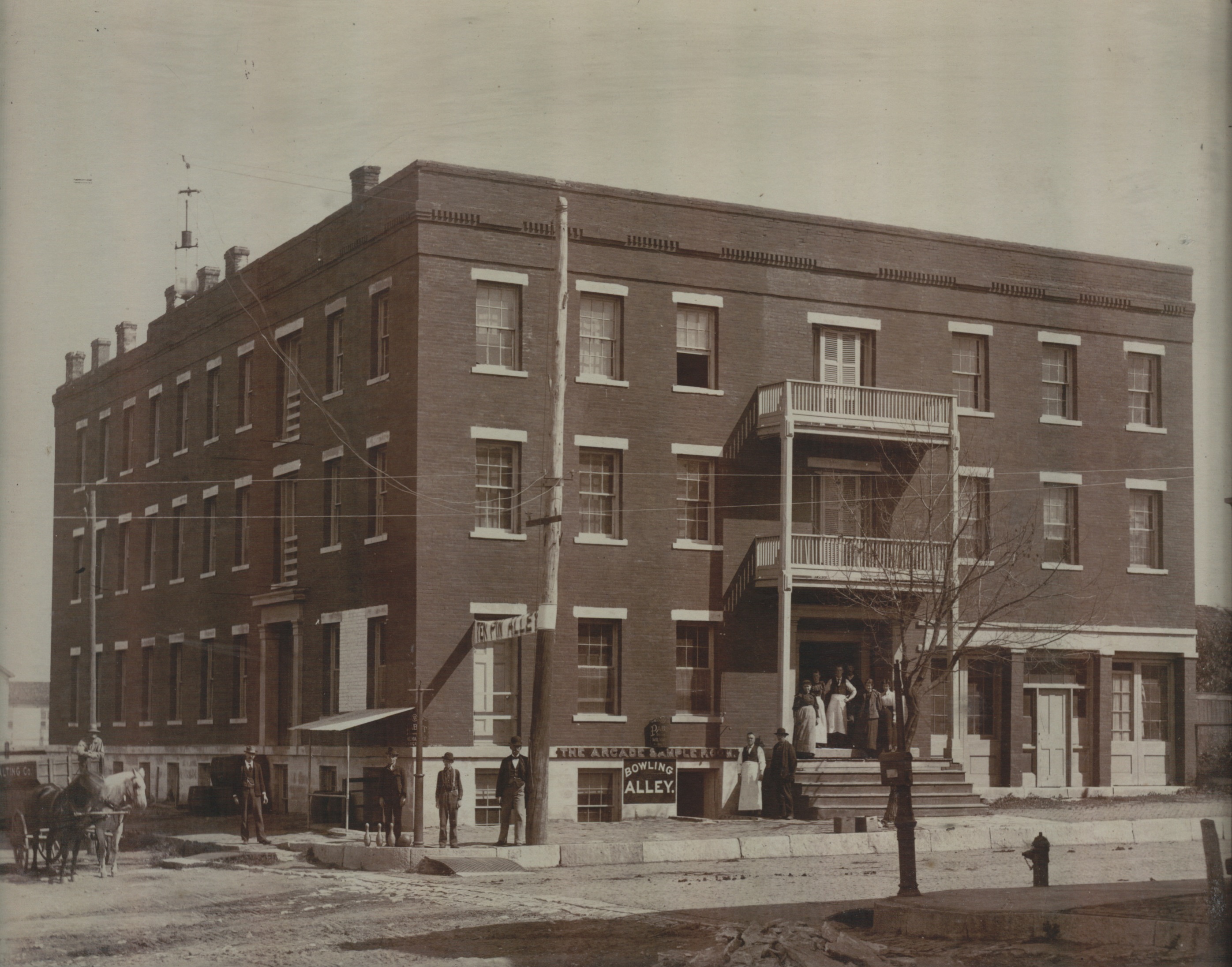
In 1879, Mrs. E. Barber converted a building into a hotel on Elizabeth Street across the street from the courthouse. This was Woodard House or Woodard’s, which burned down in 1899. The Tazewell Hotel was built in its place. In 1962, the building was sold to Herget National Bank, which razed it to make way for a parking lot. At the time, the Tazewell was the only remaining major hotel in downtown Pekin.
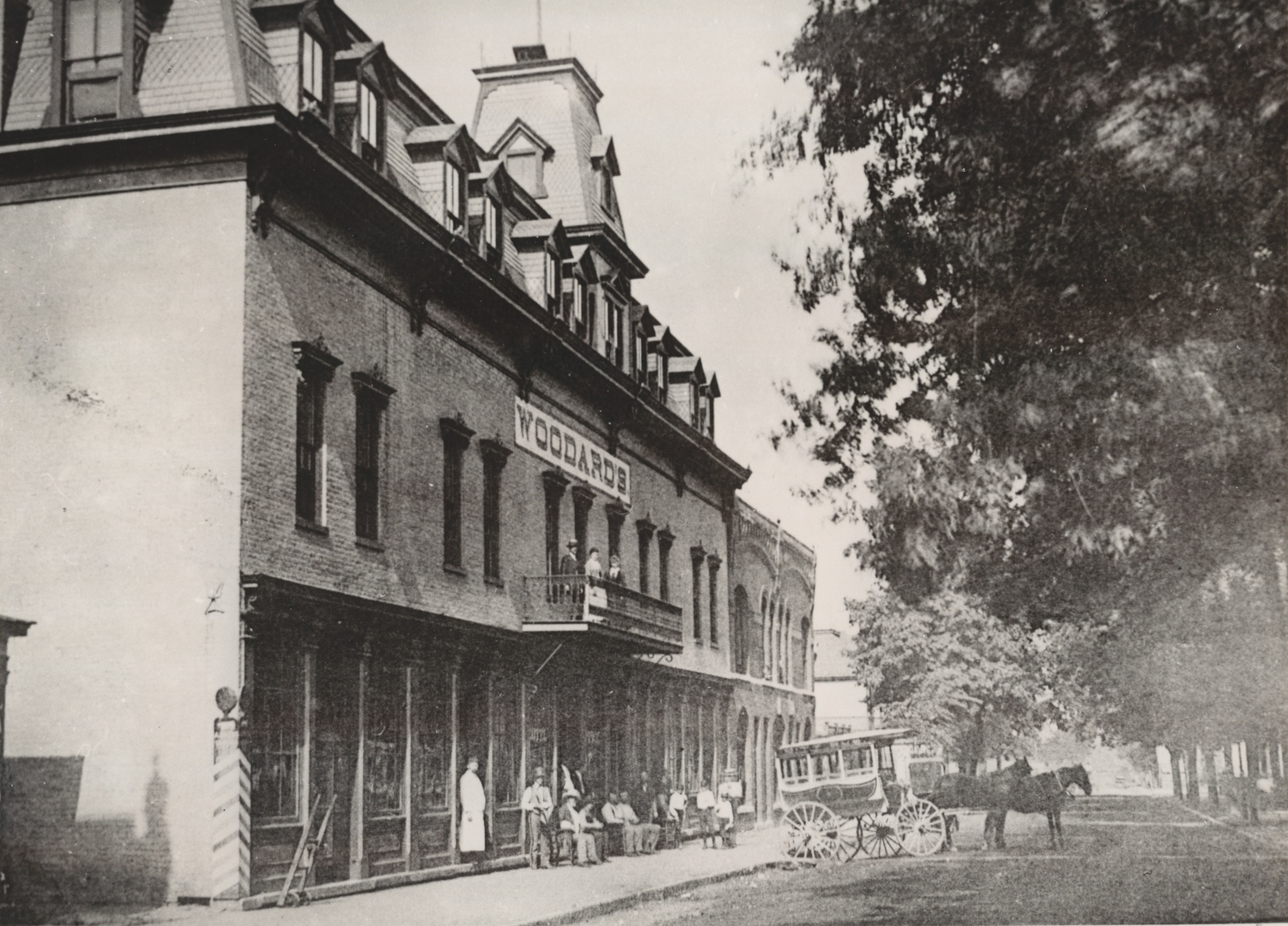
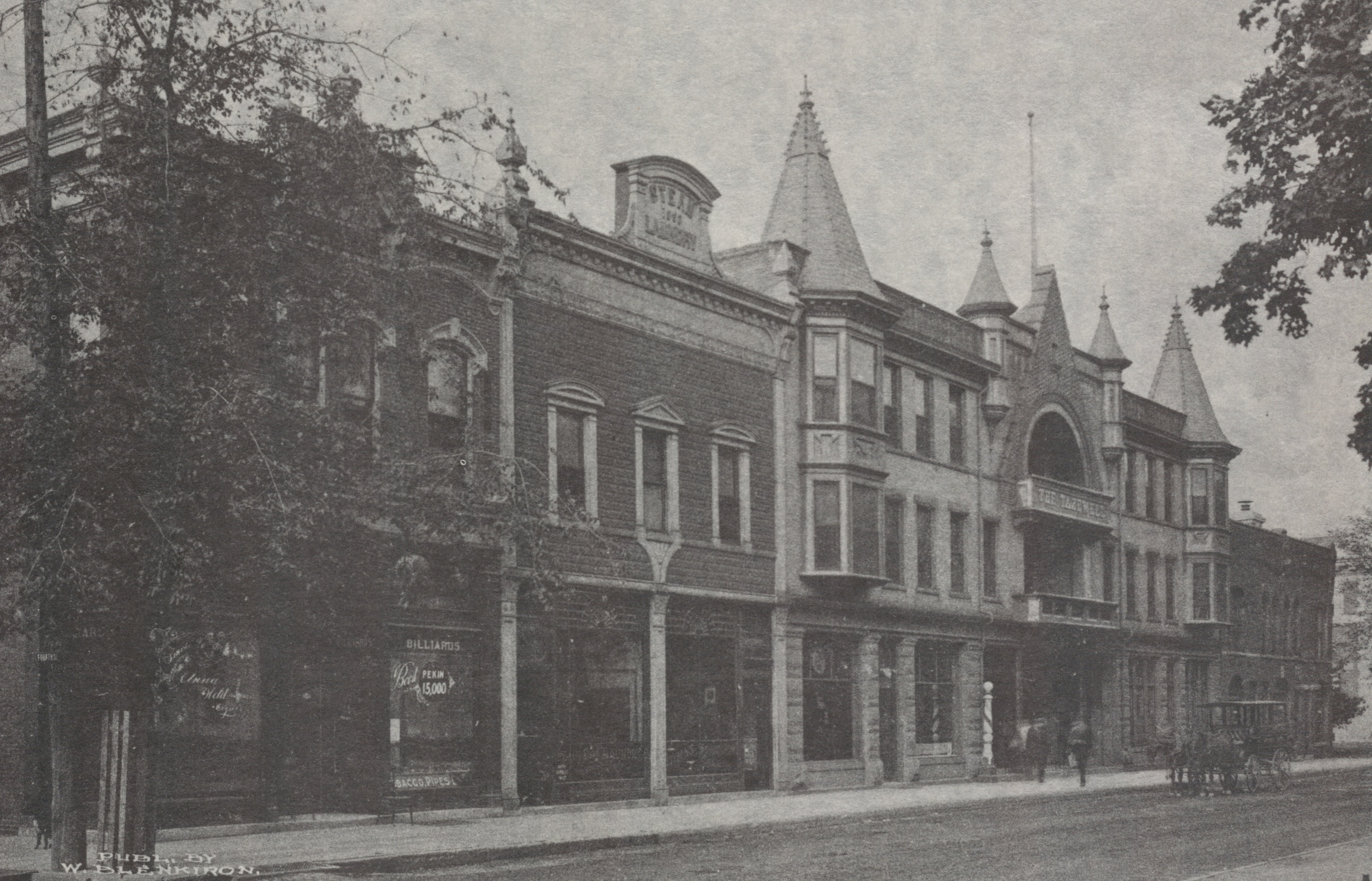
Around the turn of the century, the Tazewell was one of seven hotels in the city. One of them, the Illinois Hotel (formerly called Sherman House), outlived the Tazewell by little more than a year, being torn down in the spring of 1963. Sherman House was built in 1874 by John Weber at the corner of Second and St. Mary streets. The Union House was opened in or about 1876 by Dietrich Leonhard . Two others, the Central House and the Columbia (opened in 1893), were torn down in the 1950s. By then, however, the era of Pekin’s grand downtown hotels was already past.
